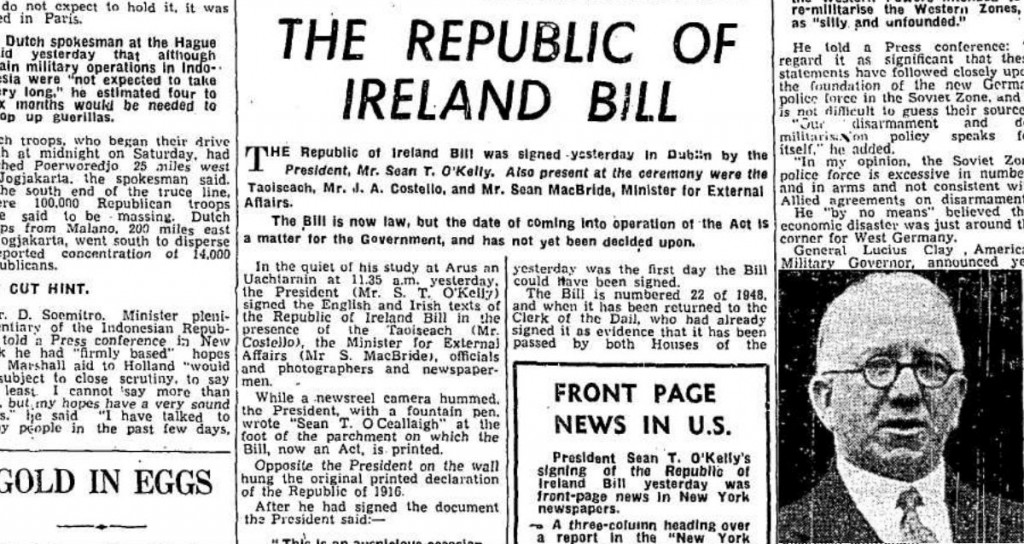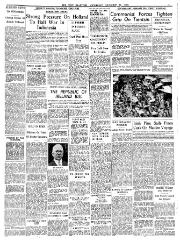
Republic of Ireland Bill 21.December.1948
On this day in 1948 the Republic of Ireland Bill was passed and signed into law by President Seán T. O'Kelly at a ceremony at Áras an Uachtaráin. Under the External Relations Act of 1936 the role of the British crown in internal Irish affairs was removed, though the Irish state remained associated with the Commonwealth for external affairs. In the run-up to the 1948 general election it seemed as if then Taoiseach Eamon de Valera was prepared to repeal the External Relations Act, declare a republic, and keep Ireland within the Commonwealth. However, his party lost the election and the interparty government that came to power in February 1948, led by Fine Gael’s John A. Costello pressed ahead with the idea, although it came about in somewhat bizarre circumstances. On 1 September 1948, during a speech to the Canadian Bar Association, Costello criticized the External Relations Act and hinted that it would be removed. Then on 5 September the Sunday Independent reported that the External Relations Act was to be removed and that Ireland would leave the Commonwealth. Reacting to the news from Ireland, on 7 September, at a press conference in Ottawa, Costello confirmed the story that the External Relations Act was to go and that Ireland would leave the Commonwealth. The act came into effect on Easter Monday, 19 April 1949, the thirty-third anniversary of the 1916 Easter Rising. The British government reacted by introducing the ‘Ireland Act’, formally recognising Ireland’s departure from the commonwealth. News of the Bill in December 1948 was reported around the world. In the USA Irish-Americans rejoiced, with the New York Sun newspaper reporting that ‘Eire at last is free’.